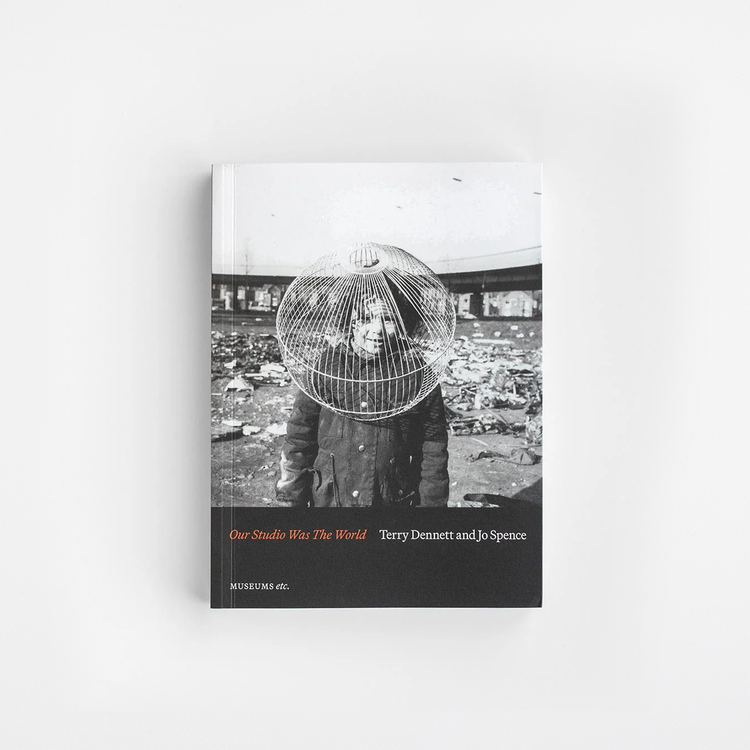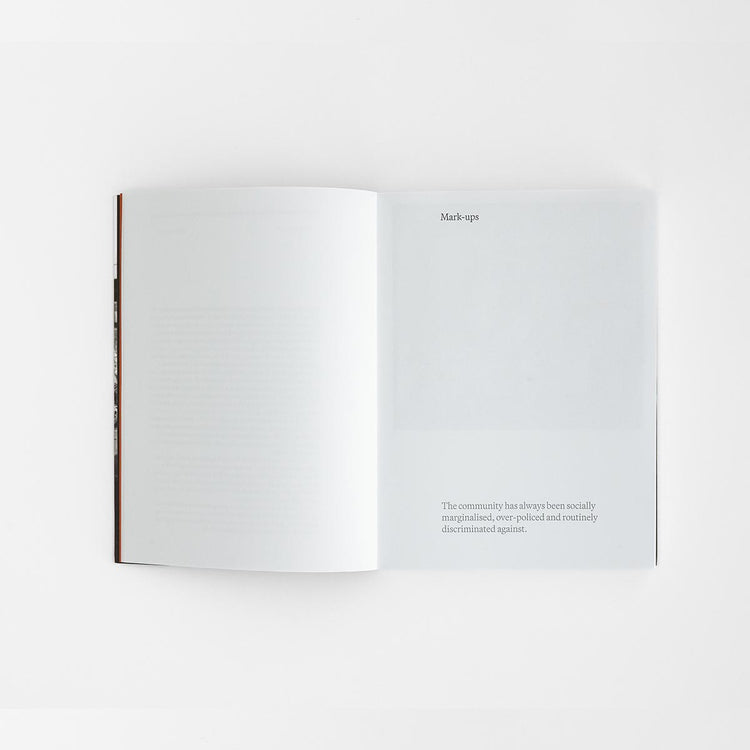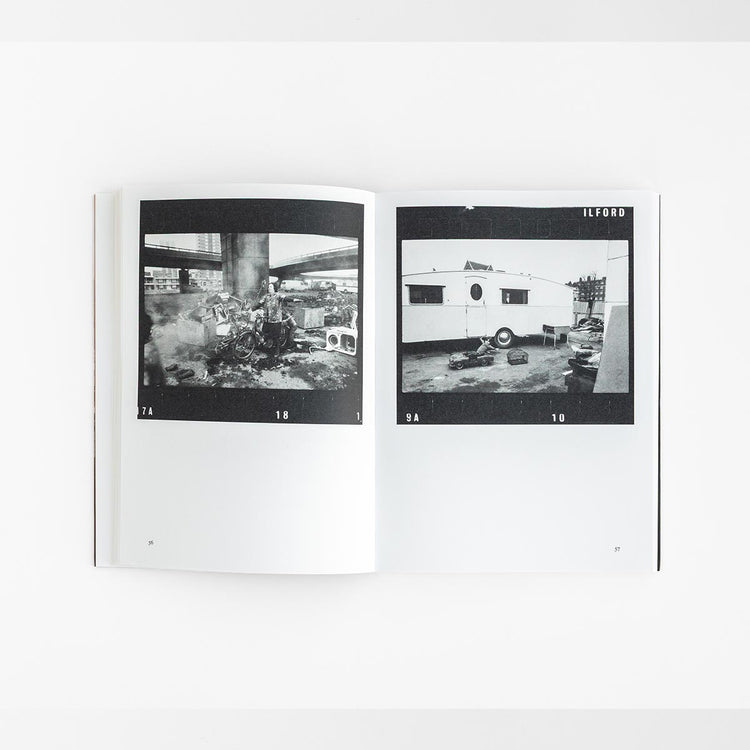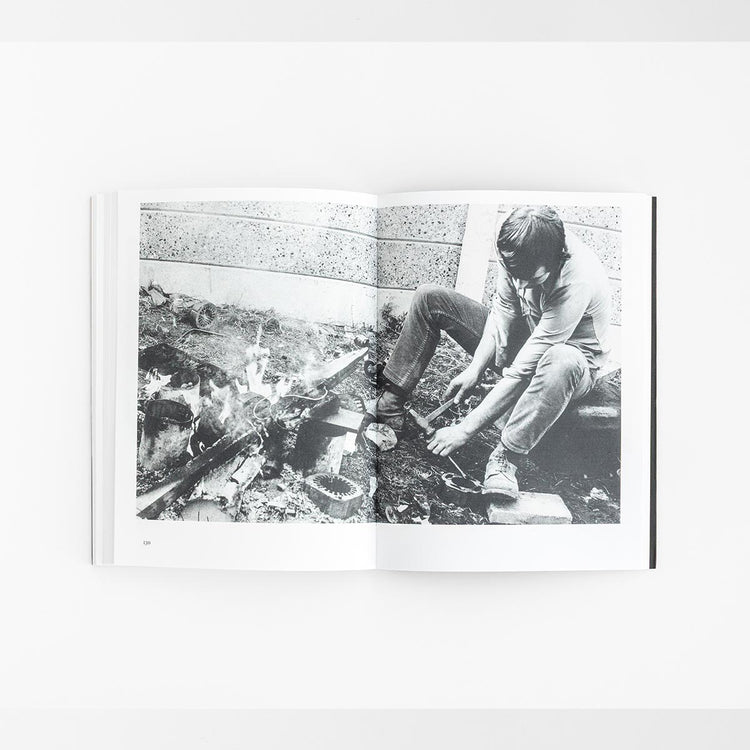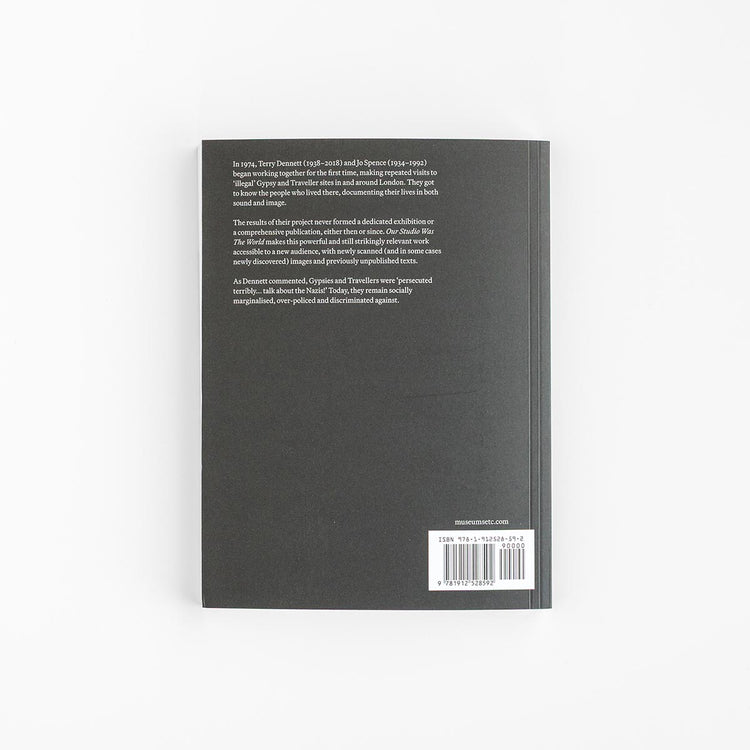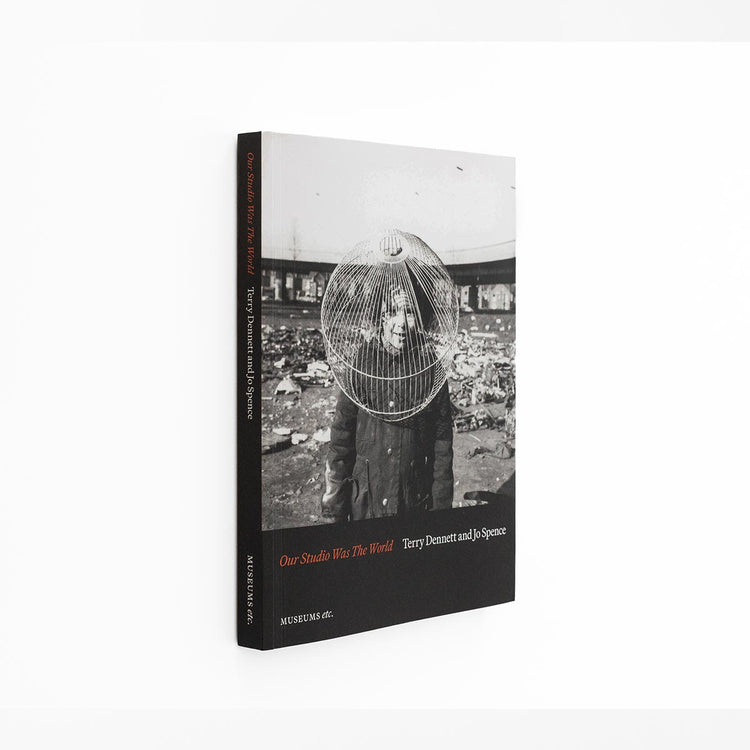Description
Contents list
More
Less
Photographers
More
Less
Reviews
More
Less
Data
More
Less
Shipping Information
More
Less
Photography Collection
We charge just £5 for worldwide shipping on all our printed books.
Digital Editions
Digital items are sent immediately and automatically via email with a link to download your purchase.
International Orders
Printed books and t-shirts which are shipped internationally may incur import duty or taxes, which are levied once the goods reach their destination.
These vary by country and are payable by the receiver; eBooks are exempt.
Description
|
In 1974, photographers Terry Dennett and Jo Spence made repeated visits to 'illegal' Gypsy and Traveller sites in and around London. They got to know the people who lived there, documenting their lives in sound and image. The results of their project never formed a dedicated exhibition or a comprehensive publication, either then or since. Our Studio Was The World makes this powerful and still strikingly relevant work accessible to a new audience, with freshly scanned (and in some cases newly discovered) images and previously unpublished texts. As Dennett commented, Gypsies and Travellers were 'persecuted terribly... talk about the Nazis!' Today, they remain socially marginalised, over-policed and discriminated against. |
Contents list
Photographers
Reviews
Data
Shipping Information
Photography Collection
We charge just £5 for worldwide shipping on all our printed books.
Digital Editions
Digital items are sent immediately and automatically via email with a link to download your purchase.
International Orders
Printed books and t-shirts which are shipped internationally may incur import duty or taxes, which are levied once the goods reach their destination.
These vary by country and are payable by the receiver; eBooks are exempt.
You May Also Like














